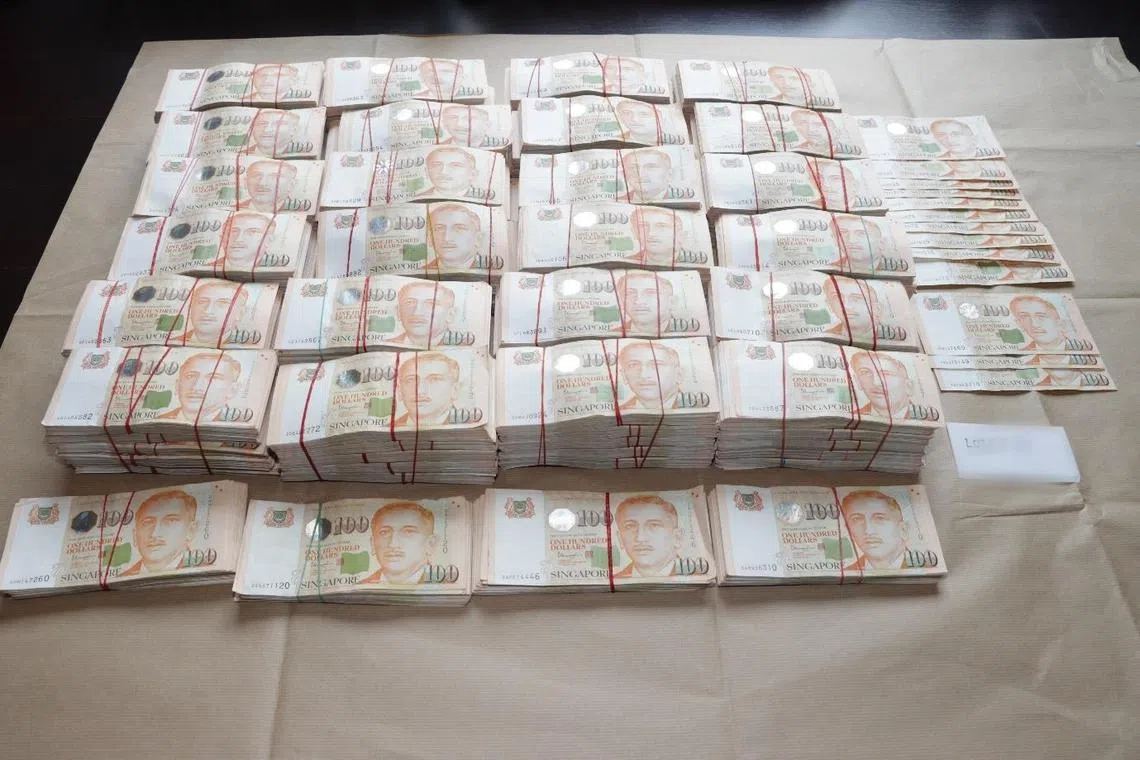New laws to target money laundering give S’pore more powers to assist foreign crime probes
Sign up now: Get ST's newsletters delivered to your inbox

Minister of State for Law Murali Pillai said the new laws bolster Singapore’s national strategy against money laundering and terror financing.
PHOTO: SINGAPORE POLICE FORCE
SINGAPORE – Even if criminal prosecutions have not started overseas, the authorities in Singapore will soon be able to take statements from people to assist in investigating foreign crimes.
This would mean the Republic can better help other countries in their criminal investigations, after the Mutual Assistance in Criminal Matters (Amendment) and Other Matters Bill was passed in Parliament on Nov 11.
Currently, Singapore cannot take such evidence if the foreign country has not started court proceedings.
Speaking during the debate on the Bill on Nov 11, Minister of State for Law Murali Pillai said the new laws bolster Singapore’s national strategy against money laundering and terror financing.
He said a strong international cooperation framework is vital as crime is increasingly transnational in nature.
“It is (in) our interests to ensure that our laws are updated... to allow us to cooperate effectively with other countries to prevent and punish crime,” said Mr Murali, who is also Minister of State for Transport.
A slew of government measures have been introduced in recent months to combat money laundering.
In an Oct 4 report
The Anti-Money Laundering and Other Matters Bill,
These measures came after a high-profile $3 billion money laundering case
On Nov 11, Mr Murali said Singapore has taken a “resolute stance” against money laundering, terrorism financing and proliferation financing.
With the new laws, Singapore can seize property that is intended to be used in a foreign offence, and not just property that was used.
The Republic will also be able to enforce foreign confiscation orders made by a competent authority. Currently, it is able to enforce such orders only if they are from a court.
A foreign confiscation order is made to recover, forfeit or confiscate any payment or property related to a foreign offence.
Mr Murali said these laws strengthen Singapore’s ability to deprive criminals of their property and illicit proceeds.
Singapore’s laws on trusts will also be updated.
A trust is created when a settlor transfers legal ownership of a property to a trustee, who handles it for a beneficiary.
It can be used for legitimate purposes, such as when an aged parent transfers assets to a trusted family member to provide for their disabled child.
However, trusts can be misused by criminals as they can conceal the person who would ultimately benefit from the asset, particularly when they are used as part of a complex structure.
The law will soon require trustees to obtain more information about the trust, which would help banks in customer due diligence checks, and law enforcement agencies in conducting investigations.
Those who breach the rules will face a higher maximum fine of $25,000, up from $1,000 currently.
Investigative powers for such offences will be transferred from the police to a public officer called the Commissioner of Trust Enforcement under the Ministry of Law.
Mr Yip Hon Weng (Yio Chu Kang) asked how the Government will balance international cooperation with citizens’ right to privacy.
Mr Murali said there are existing legal safeguards. For example, Singapore must refuse assistance to a foreign country if it requests to investigate a person on account of the individual’s race, religion or political opinions.
The minister added: “In the context of mutual legal assistance, it is critical that we do not, and indeed we will not, blindly accede to every request that we receive.”



